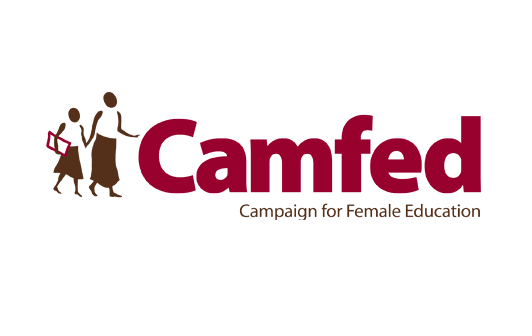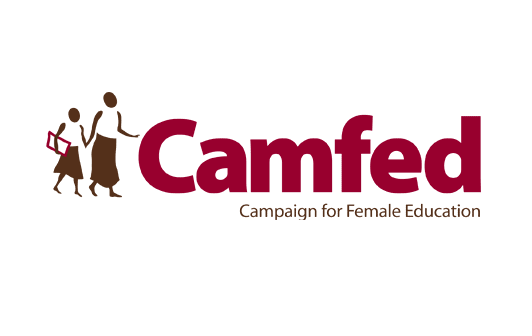
Camfed

Camfed scales girls’ education with Salesforce
Camfed, an international non-profit organisation, supports marginalised girls in sub-Saharan Africa to go to school, succeed, and lead. Since 1993, more than 3.5 million children in Zimbabwe, Zambia, Ghana, Tanzania and Malawi have benefitted. And with the holistic programme insight provided by Salesforce, Camfed hopes to galvanise communities and donors to reach even more children, in much less time.
“Camfed mobilises an entire social infrastructure around vulnerable girls to secure their right to quality education. Salesforce provides the technological infrastructure that enables our partner communities to respond with urgency and deliver girls’ education at scale,” explains Anke Adams, Head of Advocacy and Strategic Communications at Camfed. “Our programme has grown exponentially over the past two years, and now we see a new force at the helm: CAMA, the 33,111-member strong pan-African network of educated young women, most of whom were supported through secondary school by Camfed. The power of the CAMA network, combined with the power of big data from Salesforce, is multiplying the benefits of girls’ education throughout sub-Saharan Africa.”
A class act
To enable its CAMA alumnae and the 136,773 local community activists to provide effective support for vulnerable students on their journey through school, Camfed needs visibility of every student at every step of their education.
“With NPSP, we have created detailed records for more than 220,000 pupils and are adding more every day,” comments Dan Probert, Head of IT Innovation at Camfed. “Our community activists use mobile devices to collect data at 5,270 partner government schools. Data includes a pupil’s family situation and attendance record, which helps us identify girls at risk of dropping out, and take immediate action.”
Encouraging a girl to stay in education in Africa has the potential to drastically change her life – she’ll be three times less likely to get HIV/AIDS, she’ll have a smaller, healthier family, earn 25 percent more income, and reinvest 90 per cent back in her family. And Camfed’s programme, which supports graduates to transition to a secure livelihood and into leadership positions, has an impact well beyond the family, as girls ‘plough’ the benefits of their education back into their communities, and advocate for change at district and national level.
But advocacy begins at home, where graduates mentor the next generation at local schools, using big data to help keep girls in school. “In one Zimbabwean school in a single month, young women graduates were able to bring 58 pupils back into the classroom by using the data captured in NPSP combined with their unique local knowledge and experience. That’s 58 children per school per month who now have a second chance at a future beyond poverty,” comments Adams.
A single platform solution
NPSP also enables Camfed and its community partners to analyse the ongoing success and impact of its programmes. As Probert explains: “With a single dashboard, we can access the data that feeds executive decision-making; for example, the number of students receiving support in the current academic year or the number of CAMA graduates in each country. We can look at performance, retention and progression rates. This insight helps us deliver more successful outcomes.”
Camfed is also using Salesforce CRM to manage its relationships with donors and supporters around the world, and the funding allocation for each student.
“What started as a programme database has evolved into a platform that supports almost every aspect of our organisation,” reveals Probert. “When a donor makes a contribution via our website, it happens in Salesforce CRM; when a payment is correlated with a pupil’s entitlements, it happens in Salesforce CRM. With Salesforce CRM, we can harness the power of people and data.”
To support this one platform approach, Camfed uses a number of apps from the Salesforce AppExchange, as well as apps developed in-house. Recently the organisation has moved away from its third party finance system to a solution built on the Salesforce platform which now provides a single view of transactional data related to programmatic data.

“Many off-the-shelf packages do not work for us,” Probert comments. “That’s what makes Salesforce so great; it’s a platform that we can continuously develop.”
A brighter future led by educated African women
Camfed isn’t just evolving and growing its use of technology; it’s also evolving and growing its partnership with students and communities. Camfed has committed to supporting one million girls through the entire secondary school cycle within five years, a commitment that can only be achieved because Camfed’s graduates and their communities are bringing all of their resources to the table in support of girls’ education, and because Salesforce delivers the data required to efficiently deliver, monitor and evaluate programmes at scale.
“We have limited staff resources, but immense community resources, with CAMA members now leading the movement for girls’ education in rural Africa, passing on life skills to help the next generation of vulnerable children change their futures,” comments Adams.
“With Salesforce we not only track our students, CAMA members, programmes and resources, we can also make those resources go further,” adds Probert.
“By helping this generation of girls with a sense of absolute urgency, we are not only hoping for a better future led by young African women – we are counting on it.”